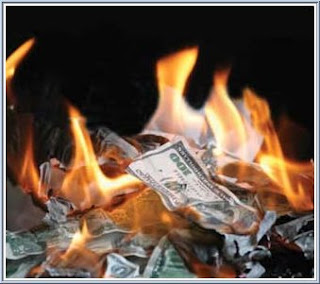Edited by Robin Silberman and Louis Standish

America’s severe recession brings a rectification concerning American economic “myths,” allowing the whole world to see that the once-upon-a-time “American Dream” is now nothing but ashes and smoke.
First of all, the United States has lost its image as the nation of small businesses and entrepreneurs. The percentage of entrepreneurs and the employees hired by small business in the U.S. has dropped significantly compared to other developing countries and is much smaller. According to “The Guardian,” the U.S. does not hold the supremacy in this domain anymore.
Referring to this situation, the economist Paul Krugman has stated that “one more American myth bites the dust.”
Krugman’s possible explanation for the absence of a consistent social strata for this entrepreneurial group is tied in with the lack of good healthcare at a national level. There are certain risks that come with a new business, risks that are easily avoided when a person is just hired, and the deficiency in the current available health care complicates this issue.
The support for entrepreneurs is not the only aspect of the American economy that used to be envied by the entire world.
The American “economic dynamism” was possible due to great mobility in the economy, which was larger in the U.S. than in Europe. Now American small business entrepreneurs are at the bottom of this classification compared with other developed countries in being able to increase their income and expand nationally.
The idea that U.S. businesses were more “internationally competitive” does not hold its ground with the current numbers: the U.S. commercial deficit is gigantic compared to the other developed countries.
At the same time, the idea that the financial system is more “friendly” was destroyed by the current crisis, which also showed the system to be old and inefficient.
On the other hand, the majority of Americans pay high fees for the institutions that claim the efficiency of these “successful myths.” The U.S. is considered to be the “nation without holidays,” in that that there is no law ensuring paid vacations. On a similar note, the holiday leave periods offered to Americans are much shorter than the ones offered in Europe.
The existing U.S. health care system is inefficient and twice as expensive for its citizens than the corresponding systems for European citizens in their native countries. The high costs and inefficiency of U.S. health care is deplorable, a fact based on two ratings: life expectancy and infant mortality.
Let’s not even mention the obsolete policies concerning maternal leave and paid sick leave absences.
Another domain where Europe thrives compared to the U.S. is in its policies towards preventing global warming. The Old Continent uses approximately half the energy per capita that the U.S uses.
The huge difference could be explained by the fact in the past centuries, the Europeans were mostly negotiating paid sick leaves and paid holidays instead of asking for higher salaries. This would explain a lower level of consumerism in Europe compared with the U.S.
It has been estimated that the U.S. would have a 20 percent lower energy consumption if its employees were working an equal amount of hours to the European working class. This would also have a significant impact on the reduction in CO2 emissions throughout the entire world.

Leave a Reply
You must be logged in to post a comment.